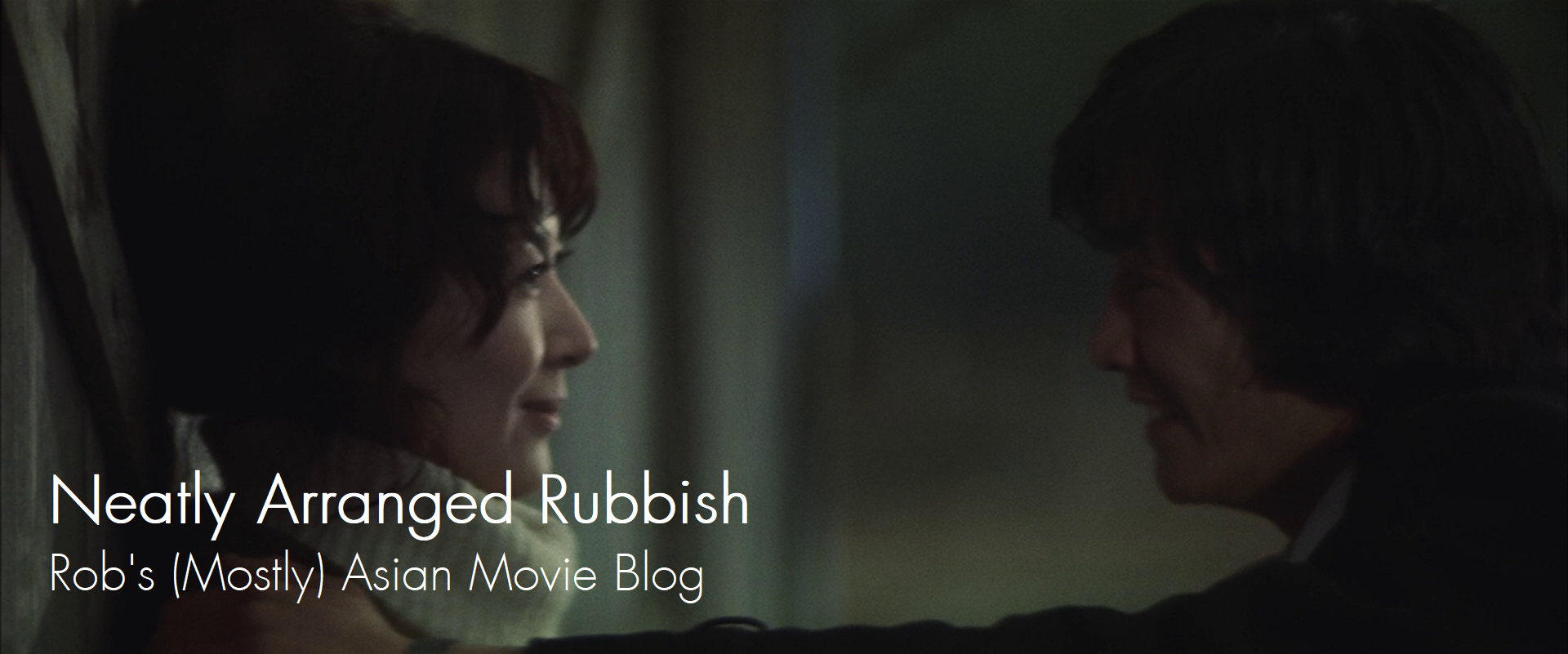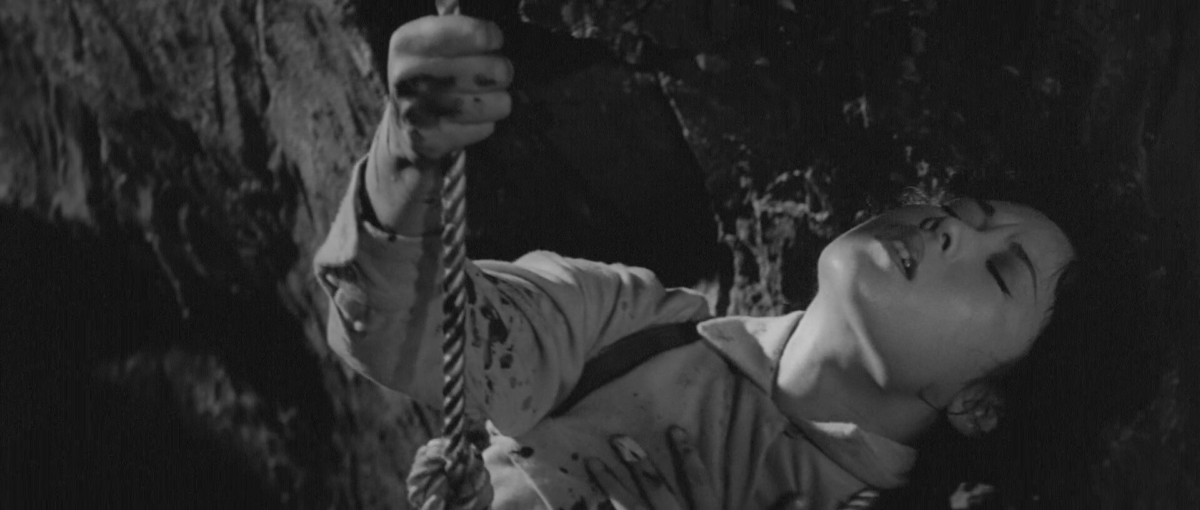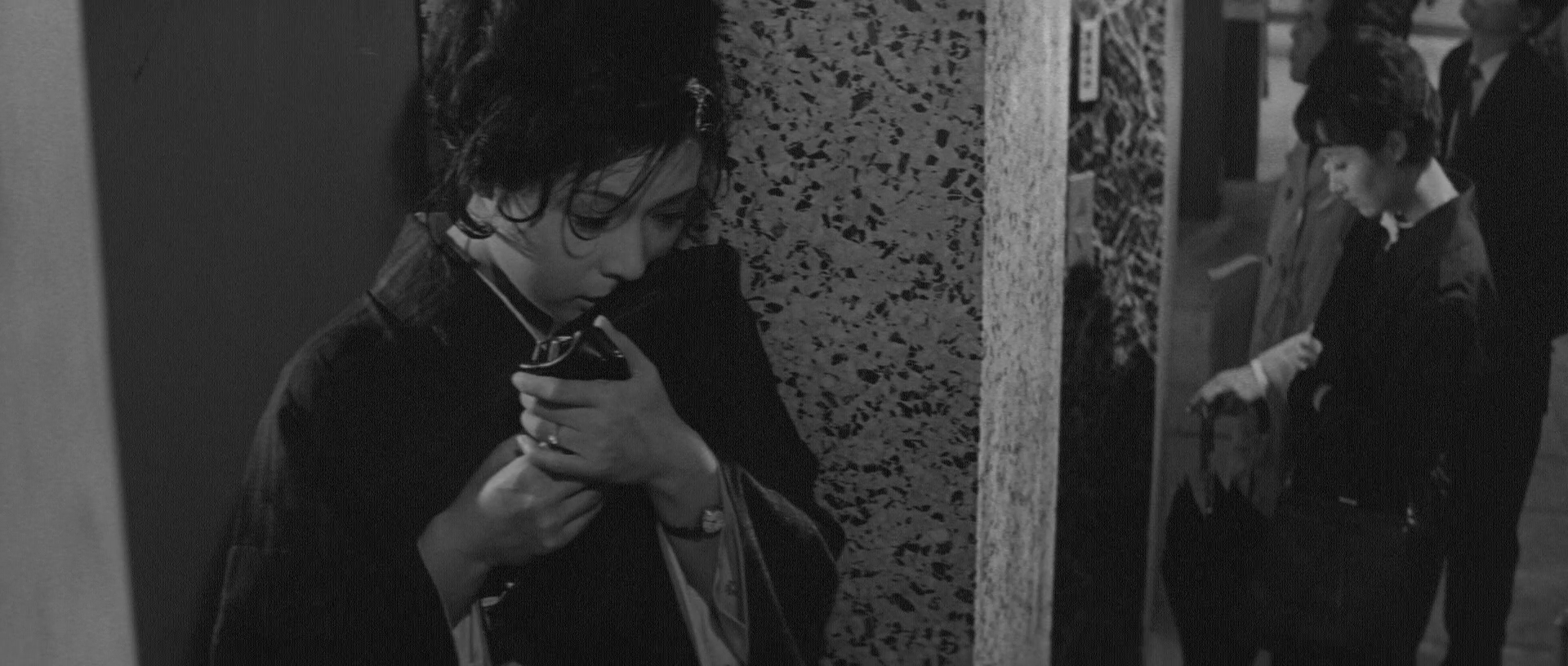Last Updated on October 6, 2020 by rob
Housewife Ayako (Ayako Wakao) stands trial for the death of her husband on a climbing expedition in the Japanese Alps. An accident left Ayako, cruel elderly hubby Ryokichi (Eitaro Ozawa) and friend Osamu (Hiroshi Kawaguchi) – for whom Ayako harbours strong romantic feelings – dangling from a single rope. Ayako claims she cut the rope which sent her husband plunging to his death to save herself. But was it self-preservation or an opportunistic act of cold-blooded murder so Ayako could go off with handsome young Osamu?
For most of its length we think we know where this is going. Courtroom flashbacks from witnesses testify to Ayako’s volatile marriage. This is a woman who keeps a bottle of poison to hand so unhappy has she become at the callous attitude of her husband. To add to her woes the public interest in her case is a source of continual, constant torture for her. Young Osamu seems like a decent sort whose concern for Ayako’s plight deepens into love and in the process destroys his own engagement to fiancée Rie (Haruko Mabuchi). But when Ayako is acquitted of murder and her first action is to splurge hubby’s life insurance on a modern flat/love nest for herself and Osamu the truth emerges about what actually happened that day on the mountain and Osamu leaves her in disgust. Then after Ayako’s tearful entreaties to Osamu are subsequently rejected the stage is set for tragedy.
But a new perspective in the last minute brilliantly reverses our previously certain opinions of Ayako and Osamu. Ultimately we’re invited to consider two deaths – one done for love, the other out of an inability to love – and asked, who is the real killer? Osamu’s jilted fiancee Rie knows and to say the least it’s not who we expect. There are uniformly fine performances from the whole cast in this one but Ayako is front and center and she is superb as the woman who needs the man she loves to believe in her as the strain of the court case and its attendant publicity pushes her to breaking point. There’s a lovely moment during her first meeting with Osamu when she subtly reacts to Osamu’s casual invitation to share a drink with him in a way that disarmingly suggests this is the first time in her life anybody’s ever treated her with such kindness.
After that we’re firmly in Ayako’s corner even as her mood swings hint at a potential for something darker. And a pivotal flashback to what Ayako was really feeling on that cliff face as she hung on for her life leads Osamu and the viewer to draw entirely the wrong conclusion about her actions. When the truth is finally revealed it’s both a devastating shift in perspective and a stirring testament to the female heart. All this is supported by polished production values especially Setsuo Kobayashi’s noir-ish lighting. Riichiro Manabe’s score is particularly effective in evoking a genuine sense of unease especially during a holiday getaway for the two lovers.
The capper though is Masumura’s direction. To convey the psychological pressure Ayako’s under he employs high and low camera angles to convey the vertiginous nature of Ayako’s situation, uses the widescreen frame to both isolate and entrap her (filling the frame with the bodies of gawping spectators crowding in on her). He has a real talent for maximising the fore, middle and background of his widescreen scope format with compositions both dynamic and expressive of whatever the emotional undercurrents are without ever seeming flashy about it. He’s a superb director and this movie from a period which included the equally masterful A False Student (1960) and Seisaku’s Wife (1965) represents the director at the height of his powers.



